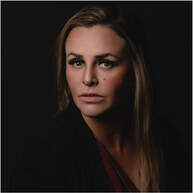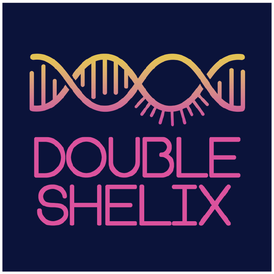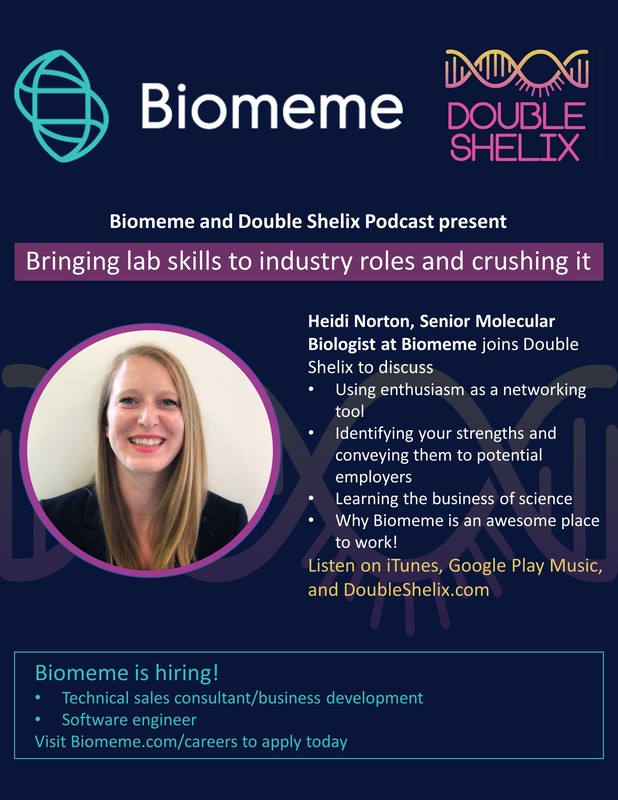|
Are you considering a PhD, but not sure if it's right for you? Or, are you deep into a PhD and trying to remember why you started in the first place? In this episode, Sally and Kayla interview Dr. Raj Kumar about the ins and outs of graduate school with a focus on PhDs in STEM. Topics include the differences between PhD and Masters degrees, how much graduate school costs, and reasons to (or not to) get a PhD. Raj is a recent PhD graduate turned Lecturer at Stanford University in the Materials Science and Engineering Department where he pursues his passion for mentoring and teaching
How many women are working in STEM careers? What are the major hurdles to achieving gender equality? Claudine Schmuck founded Gender Scan to find out. While the project originates in France, Gender Scan is expanding to collect data from across the globe. In today’s episode, Kayla and Sally discuss the launch of the 2021 Gender Scan survey and how data collection is critical to supporting women in STEM.
Show notes: Gender Scan Survey (scroll down and look left for the survey link) -Be sure to answer “Double Shelix” when asked “Are you answering to this survey following the suggestion of a partner of Gender Scan?” -The progress bar will make the survey seem quite long, but you actually only need to answer about a quarter of the questions to complete the general survey. You will then have the option to complete additional surveys about specific subtopics. Meet Time’s First-Ever Kid of the Year Timnit Gebru’s Exit From Google Exposes a Crisis in AI
Sally and Kayla GRADUATED! What were some highs and lows of graduate school? What did they wish they had known sooner? In this episode, Sally and Kayla reflect on their experiences while pursuing a PhD as well as share exciting updates for the next season of Double Shelix.
Are you a recent or soon-to-be graduate stressed about recruiting and how you will find your first "real" job?
In this episode, Kayla and Sally talk to Entrepreneur, Career Agent, and Advocate - Fatoumata Fall (Fatu) - about how graduating PhDs can optimize their job search experience. Fatu is a co-founder of Ralph, a company specializing in tech industry negotiations. They have supported over 130 STEM Ph.D.s in their negotiations, as well as their career decision-making and transition from Academia to Industry. In the episode, Fatu shares what she learned about the job search process from advising the most successful Ph.D.s. She also shares her own experience as an entrepreneur as well as her insights into the efforts tech companies are making to recruit underrepresented candidates.
What do you study? Whether it's to a leading faculty in your field or to your aunt's best friend, you have probably been asked to explain your research many, many times. How can you make your answer count without reciting an entire review paper? Sally and Kayla discuss how to craft an effective research “pitch" and then test their skills in real time. Spoiler alert: practice matters.
Show notes: -ComSciCon -General tips on three minute thesis -Three minute thesis at UC Berkeley (search your university for similar events)
Sometimes bad projects happen to good people. Kayla and Sally discuss how to identify if your project may be in trouble, talk about these challenges with team members, and say good riddance to bad project. We also talk about letting go of good projects that come to an untimely conclusion due to circumstances outside your control - lost funding, changing priorities, or, you know, a global pandemic.
Requesting, writing, and stressing about letters of recommendation? Been there! Kayla and Sally cover all these letter of rec worries and more! We get into the weeds like what to do when a recommender asks you to "write the first draft for me" and how many "friendly reminder" emails are too many. Finally, we walk you through writing your first letter of rec about a trainee. It's the first of our Skill Share series - hope you enjoy!
How involved should graduate students be in activities outside of lab? Sally and Kayla discuss how to strategically choose personally- and professionally-fulfilling extracurriculars while still budgeting time for life.
Science policy panelists Andrew Bremer, Stephanie Mack, and Kathy Shield join Sally and Kayla again to discuss how scientific research is funded with a focus on the process of allocating and distributing government funding. The panelists also share how graduate students can be involved in this process and impact research funding for years to come. Links: Journal Science Policy and Governance http://www.sciencepolicyjournal.org/ National Science Policy Network https://scipolnetwork.org/ Science Policy Group of Berkeley https://sciencepolicy.berkeley.edu/ Twitter tags: @STEMvotes @UCB_SciPolicy 
When her first career dreams were absolutely dashed, Dr. Maria Artunduaga reinvented herself, founded a company, and learned to thrive.Trained as a physician in her home country, Colombia, Maria dreamed of coming to the US to become a pediatric plastic surgeon and hustled to make it happen. When blatant discrimination and subsequent litigation forced her out of medicine forever, she felt stuck. Eventually, she trained and studied to become an engineer and entrepreneur. She founded Respira Labs and is using acoustics to identify COPD (chronic obstructive pulmonary disease) flareups. Maria shares her journey, her advice for others going through career hell or facing discrimination, and lessons learned as a CEO. We are honored to share her story as part of our Journeys series.
Find Maria on Twitter @DrArtunduaga and Respira Labs @RespiraLabs or RespiraLabs.com. Subscribe to Double Shelix and tell your friends! Find us on Twitter @doubleshelixpod or email us - [email protected]. Thanks to the Berkeley Student Tech Fund for supporting the series and to Joel Wanek for editing and production.
Skydeck, UC Berkeley’s startup accelerator program, has created a new model for funding education. They provide resources and funding to help university-affiliated founders go from idea to startup, and profits from Skydeck’s venture fund go directly back to the University. Double Shelix is delighted to welcome Caroline Winnett, Skydeck’s Executive Director, to discuss her path from concert violinist to MBA grad to startup gamechanger. We also discuss some of Silicon Valley’s systemic issues and what needs to change to make entrepreneurship accessible to everyone. If you have a startup or are thinking about thinking about starting one, Caroline will inspire you to absolutely go for it!
Berkeley Skydeck UC Berkeley Entrepreneurship Resources Thank you to Joel Wanek from Mind Space Time for editing and production of this episode! Subscribe to Double Shelix on iTunes, and tell a friend about our podcast! Feedback? [email protected] Twitter @doubleshelixpod Instagram @doubleshelix
You’ve secured a coveted faculty position - now what? Double Shelix welcomes Helen Zha, Assistant Professor of Chemical Engineering at Rensselaer Polytechnic Institute in Troy, NY. Helen started as a faculty in January 2018, and on this episode, we discuss her experiences on the faculty job market and how we can learn from her mistakes - and her successes! Helen shares the triumphs and challenges she has faced in the first year of running a brand new research group, and the best advice she’s gotten from her mentors about navigating this exciting career stage. Also, tenure is only 4 years away, so we discuss that terrifying situation, and why it doesn’t seem equally terrifying to all junior faculty. We also discover what motivated Helen to pursue an academic career, her ultimate career and life goals, and how she has perfected the art of the lipstick break. Oh, and her biohybrid materials research, of course!
DOUBLE SHELIX LIVE - Tuesday, October 23 at 5:30 pm. UC Berkeley Hearst Mining Building, Room 290. All are welcome! Free food thanks to our partners, Berkeley Society of Women Engineers. We’ll be discussing how learning the hidden curriculum for success in STEM can help students overcome imposter syndrome and excel! More info: https://goo.gl/brDeto Hope to see you there! Helen Zha’s research group - https://www.biohybridmaterialslab.com/ Subscribe to Double Shelix on iTunes! More on doubleshelix.com Instagram - @doubleshelixpodcast Twitter - @doubleshelixpod Email us - [email protected] Tell a friend or colleague about Double Shelix! Bringing lab skills to industry roles and crushing it with Heidi Norton, scientist at Biomeme10/7/2018
Heidi Norton joins Double Shelix to discuss her transition from graduate school to living her best life as a senior molecular biologist at Biomeme, a biotech startup in Philadelphia. She shares her tips for using enthusiasm as a networking tool, and how students and early career professionals can identify their strengths and demonstrate them to potential employers. Heidi shares some of the awesome science she does Biomeme, creating hand-held PCR machines to find endangered species, diagnose diseases in the field, and track high-value goods in the supply chain. Heidi tells us why she loves working at Biomeme and about current job openings at Biomeme - a technical sales/business development role and a software development role! If you love science and solving problems and want to learn more about the business of science, you should TOTALLY APPLY!
Biomeme's open positions - biomeme.com/careers Biomeme on LinkedIn Email Heidi for more inside scoop on the job postings - [email protected] Biomeme on Instagram - @biomemeinc Biomeme on Twitter - @biomemeinc Awesome videos of Biomeme's technology out in the world - biomeme.com Heidi's blog, Beta Pleated Chic -betapleatedchic.com Thank you to Biomeme for supporting this episode! Please apply to their jobs or tell a friend or mentee to apply - we all could use a little encouragement to reach for our dreams! If you apply, tell Sally and Kayla (who couldn't join for this episode, but will be back!) and we will send you encouraging gifs! Subscribe to Double Shelix on iTunes! More on doubleshelix.com Instagram - @doubleshelixpodcast Twitter - @doubleshelixpod
How can you make the most of a short research or work experience?! Sally and Kayla give their tips for how to succeed in a summer internship or research rotation. We discuss how to manage day-to-day responsibilities, demonstrate your curiosity and eagerness, and finish strong to leave a great impression. We give the inside scoop on asking for letters of recommendation and navigating tough conversations about authorship and publication goals. Also, what to do when you end up in a truly toxic situation (which you probably won’t, but still it’s scary). Other important things: great lab notebook habits and tips for all stakeholders to make a successful undergraduate poster fair. If you supervise interns or rotation students, or if you are one - this is the episode for you!
Resources: *All the best practical tips for crushing your summer research experience, from The STEM Squad *Excellent tips about framing your summer work experiences in future job, school, or fellowship applications on our episode with Christina Fuentes and Shaheen Jeeawoody *Stellar advice for becoming an amazing mentee and mentor, on our episode Next Level Mentorship for Mentors and Mentees with Julea Vlassakis *Sally’s post on how to ask for a letter of recommendation on Beta Pleated Chic Thank you to our funders, the University of Pennsylvania Department of Bioengineering and the Berkeley Student Tech Fund. Share your thoughts on this episode on our voicemail 415-895-0850 or email us [email protected]. We're on Twitter @doubleshelixpod and on Instagram @doubleshelixpodcast - give us a follow! Thank you to everyone who has reviewed us on iTunes!
We wrap up the You do Belong in Science series with listener stories and lessons learned from this series. Listeners write in with stories about the importance of professors' LGBTQ allyship and dealing with chronic illness in graduate school. We reveal who does not belong in science (spoiler alert/content advisory, it's sexual harassers). We also welcome allyship correspondent Jon Muncie to discuss actions everyone can take to prevent and respond to sexual harassment in the workplace, fairly judge peers' research, and increase representation and promote inclusion of people from underrepresented groups in STEM. He reminds us that we need to get comfortable being uncomfortable when it comes to discussing and addressing these important issues facing our science workplaces.
Resources * Resources for LGBTQ+ students, staff, faculty, and allies at Berkeley, at UCSF, and at U of Pennsylvania * Proud and Prepared: A Guide for LGBT Students Navigating Graduate Training - resource from the American Psychological Association. Preview it here * Dr. Kate Clancy's congressional testimony video (starts ~41:30) and transcript * Dr. Kate Clancy's amazing podcast, Period Podcast * Sexual harassment videos and NYT analysis: https://nyti.ms/2Gg4NHT * Resources for dealing with sexual harassment: rainn.org/thatsharassment Thank you to our funders, the University of Pennsylvania Department of Bioengineering and the Berkeley Student Tech Fund. Also thanks to Gustavo Villarreal @wikirascals for our amazing graphics. Get your Double Shelix and You do Belong in Science stickers at doubleshelix.com/stickers. Share your thoughts on this episode - or your belonging story - on our voicemail 415-895-0850 or email us [email protected]. We're on Twitter @doubleshelixpod and coming soon to Instagram @doubleshelixpodcast - give us a follow! Thank you to everyone who has reviewed us on the iTunes store! Keep penning those awesome reviews! |
CategoriesArchives
August 2023
|


